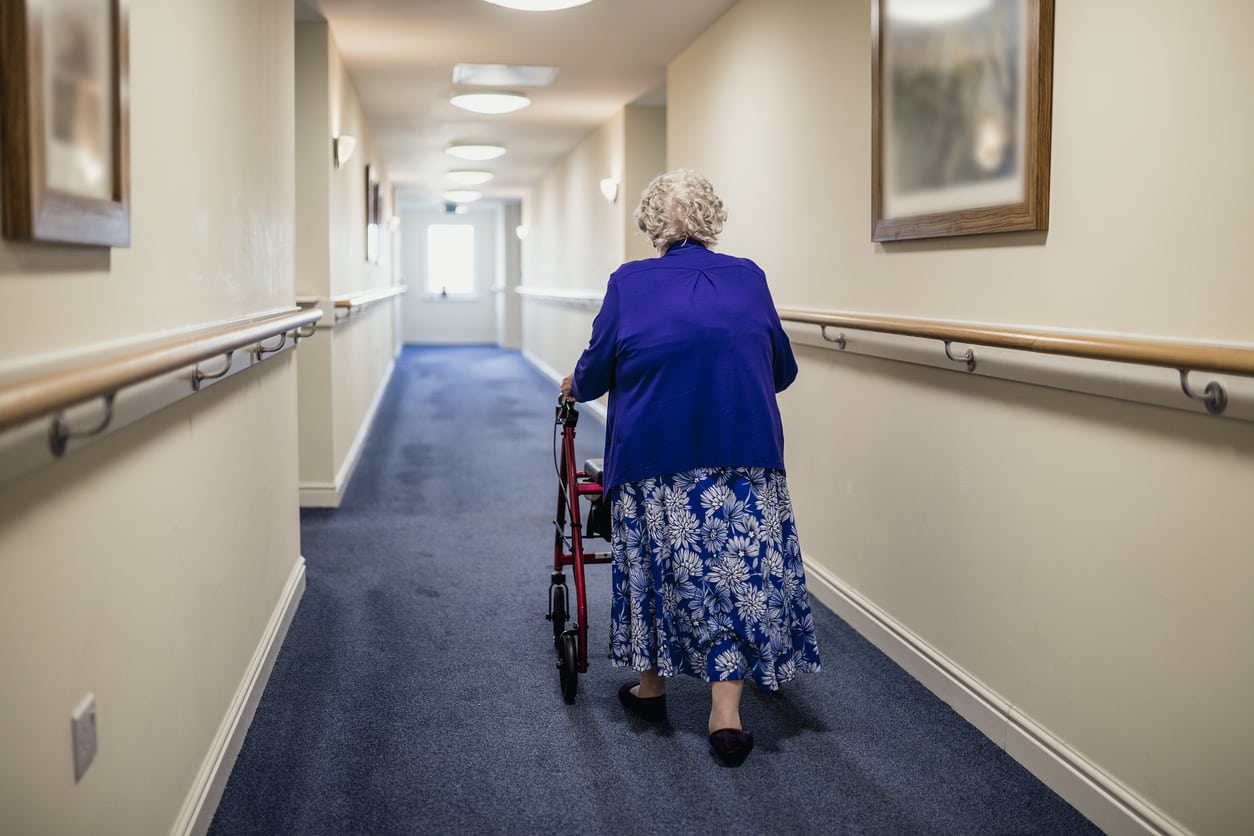
They gave life to us. They cared for us when we were too young to care for ourselves and protected us from harm. As they raised us, they taught us to be kind, compassionate and understanding. And now, as they age and lose the ability to fully care for themselves, we have the honour and responsibility of ensuring they live in the same kind of healthy and safe environment.
Choosing a nursing home for an elderly parent or loved one is one of the most important decisions we’ll need to make in our adult lives. These homes can provide a good quality of life for our elders that maximizes their interactions with others to prevent loneliness and closely monitors their well-being to ensure early medical intervention keeps them as healthy as possible.
Nevertheless, with worrying reports of nursing home neglect and abuse in the news, sadly these institutions also have the potential to harm our loved ones. If our elders are unable to communicate that they are in distress, we may not know for some time that negligence and inadequate care is hurting them.
In this blog series first I’ll list and explain the top five things to consider when choosing a nursing home in Ontario for an elderly loved one. In a subsequent blog, “Top 5 Things to Know When a Loved One is in a Nursing Home”, I’ll outline the top five things you should know once your loved one is in care. Having knowledge and the capacity to act on behalf of your elderly parent or loved one will give you the opportunity to be a strong advocate for them and to ensure they are receiving the quality of care they need and deserve.
1) Availability Through LHINs
Ontario has 14 Local Health Integration Networks (LHINs) that plan, integrate and fund local health care. LHINs are designed to improve access to health care and the patient experience.
The Government of Ontario publishes the average wait times for nursing homes and long-term care facilities. It’s important to note that the number of days waited that are listed for these facilities represent the average experience of nine out of 10 people, but individual factors and circumstances may mean your loved one will be able to access these homes sooner or may wait longer. Each person on the waitlist is assigned a priority category based on need, and these priority categories can affect the average wait time.
An individual can choose to be on the wait lists for up to five nursing homes and may express interest on a variety of types of accommodation at each home (for example, basic, semi-private and/or private rooms). Therefore a person may be listed on multiple lists and when they secure a room in one, they will be removed from others.
The only time a home can refuse an applicant who is next in line for a bed is if the home lacks the facilities necessary, or if the staff at the home lack the expertise, to provide appropriate care.
LHIN lists typically include the number of licensed beds, the number of people waiting for each type of bed, the average number of beds available per month, and the time-to-placement in days for nine out of 10 people on the list. These lists are updated on a varying basis depending on the LHIN.
The government also provides a subsidy to eligible persons based on income that covers a portion of the cost of living expenses for basic rooms (semi-private and private are not covered).
There are also categories of wait lists with LHIN, including admission for crisis, spousal admission, special unit, ethnic/religious/linguistic needs and veterans.
2) The Needs of the Elder Person
Deciding which type of facility and room would be the best fit for your loved one depends on many factors. As soon as you and your loved one decide that long-term care is going to be needed (even if it’s not immediately needed), you should contact your LHIN care coordinator to discuss availability and special considerations.
Elderly persons experiencing symptoms related to dementia or Alzheimer’s may need to be in a facility that has more stringent security and monitoring. Increased surveillance and access restrictions will prevent wandering, protect your loved one or other residents if confusion leads to aggression, and ensure basic needs are being met if a resident has diminished capacity to care for themselves. Many homes also have special programs or “memory units” for individuals with dementia or Alzheimer’s that are geared toward engagement and activity.
An elderly person with limited mobility may need to be in a nursing home (or room type) where they have easy and unobstructed access to common areas or staff who are able to assist with movement or provide extensive care and monitoring if a person is completely immobile and bed-ridden.
Although licensed nursing homes should have adequate staff to meet the needs of all residents, if you or you loved one has the means, you may also explore acquiring private supplementary care to ensure a resident’s basic needs are being met and their minds are being stimulated – particularly if distance or scheduling prevents you or other loved ones from regular visits. Private supplementary care also provides you with an extra set of eyes and ears to spot areas of concern in the facility. Alternatives such as nanny cams can serve as eyes and ears too, but be aware of privacy concerns of staff and facility rules before adding this kind of monitoring. The Criminal Code prohibits audio recording unless one party consents, which can be an issue if the resident lacks capacity to consent to the surveillance.
3) The Appropriateness of the Home
You would not buy or rent your own home sight unseen if you had the ability to visit first, and the same principle applies to choosing a home on the LHIN list.
You can get a sense of the facility in advance by consulting rating websites, but there is no substitute for an onsite visit. When you do visit in person, be sure to pay attention to cleanliness, whether common areas or walkways are properly lit and free of obstructions, and how the staff interacts with patients. However, common areas of homes are often nicer than the rooms. This is called the “chandelier” effect. Ask to see various types of rooms on the tour.
Before visiting the home, you should inquire with the Ministry of Health and Long-Term Care about any prior complaints, investigations or compliance orders. A prior complaint, investigation or order does not automatically mean the home is not appropriate, but it should be something you investigate to determine whether the home has taken steps to correct any previous violations.
When visiting the home, come prepared with questions and advanced research when possible. These might include:
- How many baths/showers does a resident receive per week?
- What is the staff per patient ratio?
- Are there Ministry of Health and Long-Term Care complaints against the facility? How have they been handled or resolved?
- Doe the facility have a doctor onsite or is there one that visits regularly? If so, how often?
- What is the director of care’s background and past work experience?
- What special programs and activities are available to residents?
Site visits and carefully researched questions combined with your own intuition will help you make an informed choice that you will feel good about.
4) Do You Keep Or Sell The Elder Person’s Home?
There’s no doubt about it. Even though we have a single-payer, publicly funded healthcare system, the cost of additional long-term care can still be quite expensive – particularly if an elder person’s income does not enable them to access government subsidies for care, or if they choose a semi-private or private room or supplemental care.
If the elder person owns their own home, liquidating this asset may be the best (or only) way to pay for this kind of care. However, this decision should not be made in haste. If it turns out that a move into one nursing home facility (or one type of room) is not working well for your elderly loved one, they may need to be transferred. If there is a waitlist for another facility or type of room, your loved one will either need to stay in an environment which isn’t acceptable to you or them, move back to their old home, or move in with loved ones (possibly causing great strain).
If financially possible, consider keeping their former home until the transition to care looks to be successful. Then, you can decide whether to sell it, rent it out in order to obtain income for the elderly person’s care, or otherwise access equity from it to sustain their long-term needs while in care. You should consult with a financial advisor who has experience with elder finances if you have any questions.
5) Is There A Power of Attorney or Substitute Decision Maker?
There’s no substitute for early action when it comes to important life decisions. Discussions about long-term care with elderly parents or loved one should begin when they are still healthy enough to live independently.
Establishing a power of attorney for your loved one (or identifying a substitute decision maker) becomes important if they are ever in a state when they cannot make competent decisions on their own. A power of attorney is a document that gives the appointed attorney the authority to make decisions when the individual is no longer capable. There are two kinds of powers of attorney – property and personal care. The determination of whether someone has capacity for each of these types of decisions is very different. Quite often, an individual may not have the capacity to manage their own finances, but are perfectly capable of making some or all of their own health care decisions. Capacity is a complex issue and should not be taken lightly. Deciding on a substitute decision maker should also not be taken lightly. Often an elderly person will appoint someone because they do not want to upset the family dynamic. While a substitute decision maker has an obligation to act in the best interest of the individual, at the end of the day, they have the “power” to make the decisions. Only someone who will genuinely act in the person’s best interest should be appointed.
Although these kinds of discussions, and contemplating living wills or end-of-life decision-making, can be awkward and unpleasant, understanding your love one’s needs and desires early can help you to make difficult decisions at times when there is acute stress or crisis. Informing the nursing home care director of powers of attorney or substitute decisions makers is important to ensure uninterrupted care and appropriate responses to circumstances they may encounter while in care.
Conclusion
Deciding on a nursing home and creating a transition plan takes a lot of thought and effort. Early communication and research will help in making the right decisions to ensure your loved one enjoys safety and security. In my next blog post “Top 5 Things to Know When a Loved One is in a Nursing Home“, I’ll explain the top five things you need to consider once you’ve made this decision and your loved one is in a long-term nursing home facility receiving care.
If your loved one has been subjected to neglect or abuse while in long-term care, Howie, Sacks and Henry’s personal injury and medical malpractice lawyers can help. Contact personal injury lawyer Melissa Miller to learn more about what options are available to you as you seek justice and restitution. You can reach Melissa at 416-847-1063 or by email at mmiller@hshlawyers.com.






